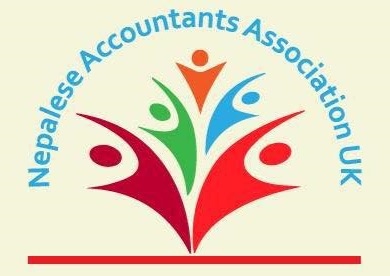Home › Forums › NAA Forum › Tax and accounting issue › Reply To: Tax and accounting issue
Answer – NAA UK
My understanding of the facts are:
1. A Ltd bought the property for £300,000
2. A Ltd granted TT a tenancy for life for a consideration of £150,000. There is no rental payment by TT to A Ltd under the tenancy.
It would have been helpful if a copy of the agreement between A Ltd and TT was available to understand the other terms of the tenancy. Based on the information, it appears that the tenancy agreement has the characteristics of a lease, especially if TT has the exclusive right to occupy the property during his life. Therefore, I assume that it is a lease despite the fact the agreement is labelled as ‘tenancy’ and the consideration paid by TT to A Ltd is a lease premium. For tax purposes, it is likely that it would have been treated as a lease premium anyway (see section 217 CTA 2009 – premium includes any similar sum payable).
Also, I have assumed that A Ltd, TT and vendor of the property are not connected with each other and all transactions were carried out on arm’s length basis.
1. Trading stock or fixed asset
Whether the property is acquired as a trading stock or fixed asset will have impact on both accounting tax positions. As far as tax is concerned, if the property is a trading stock then any disposal or part disposal will give rise to profit or loss of the trade. Ignoring any adjustments required for tax purposes (e.g. depreciation etc.), the profit or loss of the trade will follow the accounts prepared under UK Generally Accepted accounting Principles’ (UK GAAP). However, if the property is a fixed asset then any disposal or part disposal will produce chargeable gain or loss and the computation of the chargeable gain or losses have to be as prescribed in the tax legislation.
The only statutory definition of ‘trading stock’ is in relation to a business cessation. For this purpose, trading stock is defined in section 174 ITTOIA 2005. See below the extract of the definition relevant to this case.
“……….. any property (whether land or other property) which is sold in the ordinary course of the trade or would be so sold if it were mature or its manufacture, preparation or construction were complete; ……..”
Currently, A Ltd’s activities consist of property trading only. If AA Ltd acquired the property with a view to sell it then it is likely that the property will be treated as trading stock. However, if A Ltd acquired the property as long-term investment then it is likely it should be treated as fixed asset.
2. Tax position if fixed asset
Profits of the property business
Whether the lease premium or any part of it is taxed as profits of a property business depends on whether the lease is a short-term lease or not. A short-term lease is a where the effective duration of the lease is 50 years or less (section 216 CTA 2019). As the duration of the lease in this case is the life of TT, the only way to determine the effective duration of the lease is to use the life expectancy of TT himself or herself. The life expectancy of TT will depend on his age, gender and his health conditions. Unless, TT has any major health issues, it is possible to use statistics to estimate the life expectancy. As per Office for National Statistics, life expectancy at birth in the UK was 79.4 years for males and 83.1 years for females in 2017 to 2019. If we assume TT is a female, she is 43 years old and she does not have any health conditions suggesting her life expectancy might be less than the average, then the duration of the lease would be 40 years.
Once it is established that the lease is a short-term lease, the amount calculated using the following formula will be treated as profits of a property business and will be subject to corporation tax according to section 217 CTA 2009:
P x (50-Y)/50
Where P is the premium and Y is the number of complete 12 months (other than the first) comprised in the effective duration of the lease. P is £150,000 in this case and if we assume the duration of the lease is 40 years then Y will be 39 (40-1).
Using the formula, the amount which will be treated as profits of the property business will be
£150,000 x (50-39)/50 = £33,000.
Corporation tax on Chargeable gain
Receipt of a premium on the grant of a lease is a part disposal of the freehold or other asset out of which the lease is granted (paragraph 2(1), Schedule 8, TCGA 1992). Therefore, a chargeable gain needs to be calculated applying section 42 TCGA 1992. The part of the premium treated as profits of the property business by section 217 is excluded from the consideration (paragraph 5(1), Schedule 8, TCGA 1992. Therefore, the consideration for the part disposal in this case is £117,000 (150,000 – 33,000).
As per section 42 TCGA 1992, the cost of the asset is apportioned between the part disposed and the part retained. The proportion of the cost of the part disposed is calculated using the following formula
A/(A+B)
Where A is the amount of the consideration, i.e. £117,000 in this case and B is the market value of the part retained. Therefore, a valuation of the part retained, i.e. the value of the freehold subject to the lease, has to be carried out using a suitably qualified valuer. In order to continue with the analysis, let’s assume the value of the freehold subject to the lease is £173,000. Based on this the cost apportioned to the part disposed will be:
£300,000 (ignoring any incidental cost of acquisition) x (£117,000/(£117,000 + £193,000) = £113,226
Ignoring any incidental cost of the disposal, the chargeable gain subject to corporation tax will be £3,774 (£117,000 – £113,226).
Accounts
I am leaving the accounting of the transaction for others. However, I believe that it should be possible to account for it as a part disposal of the property but this is not my area of expertise.
3. Tax position if trading stock
Profits of the property business
Whether the property is trading stock or fixed asset, any grant of short-term lease will give rise to profits of the property business as described in the previous section.
Corporation tax on trading profits
Ignoring adjustments for tax purposes (e.g. depreciation capital allowances etc.), the trading profits subject to corporation tax will follow the accounts prepared under UK GAAP. The grant of the lease is likely to be treated as a part disposal of the stock. Unlike for chargeable gains purposes, there is no formula prescribed in the statute to allocate the costs to the part disposed in the case of calculation of trading profits. I believe there are two possibilities:
1. Use the same method as for the computation of chargeable gains to allocate the costs as it is one accepted method of allocating costs on a just and reasonable basis. The proceeds of £150,000 is recorded as revenue.
2. The other alternative is to look at the substance of the transaction. As the accounts prepared under UK GAAP, the transactions should be accounted for and presented in accordance with their substance and not merely their legal form. This is an important distinction between tax and accounts. Tax is a matter of law irrespective of the substance (unless there is any specific anti-avoidance provisions overriding it). However, substance takes precedent in the case of accounts. If there was a prior agreement between A Ltd and TT that the company will acquire the property and immediately grant the lease to TT, the company would not have acquired the property without this arrangement then, in my view, it is possible to argue that the substance of the transaction is that the company acquired the property subject to the lease as trading stock and TT acquired the lease. In this case, the net payment by the company, £150,000 will be cost to acquire the property subject to the lease as trading stock and can be recorded as such in the accounts. As there is no disposal, there will be no need to account for any revenue.
In my view, alternative 2 above is more plausible.
4. Other tax issues
A lease of property which is for life is treated as a settlement, and the property as settled property for inheritance tax purposes unless the lease was granted for full consideration in money or money’s worth (section 43(3) IHTA 1984). I assume that TT and A Ltd are not connected, the transaction was carried out at arm’s length and the £150,000 represents full consideration. Therefore, there are not any inheritance tax implications to consider.
Thank you,
NAA UK

